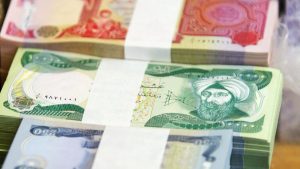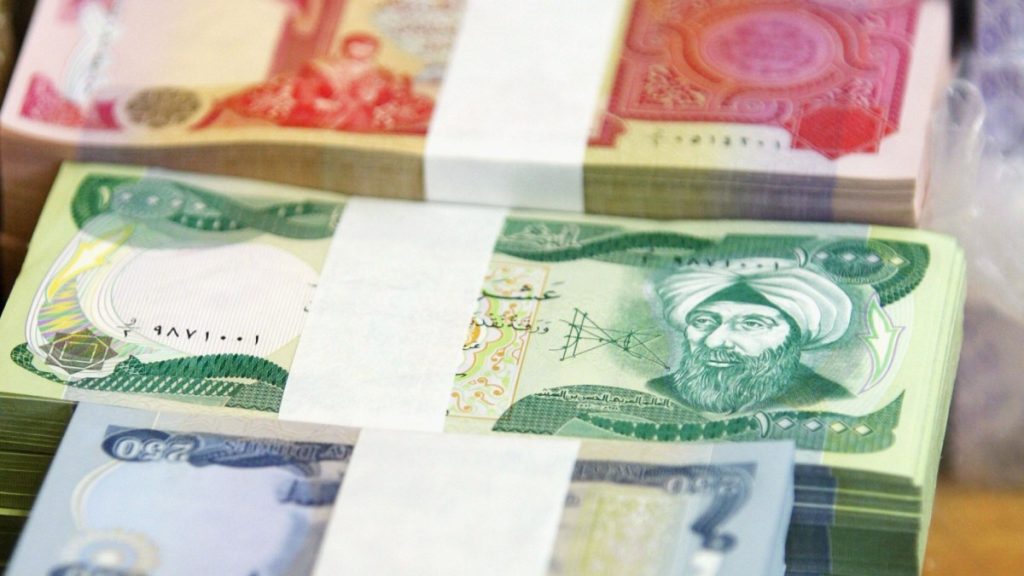The Iraqi dinar experienced fluctuations against the US dollar on Thursday, November 20, 2025, with varying rates in the official and parallel markets. Understanding the exchange rate of the Iraqi dinar is crucial for businesses, travelers, and citizens alike, given the country’s economic dependence on oil and the stability of its currency. This article provides a detailed overview of the current situation, exploring the rates in different Iraqi cities, the factors influencing these changes, and expert analysis of the future outlook.
سعر صرف الدينار العراقي اليوم: Overview of Current Rates
The exchange rate of the Iraqi dinar showed positive movement in the parallel market today, while remaining stable in the official channels. This divergence highlights the complexities of the currency market in Iraq and the influence of various internal and external factors.
سعر الصرف في السوق الموازية (Parallel Market Exchange Rate)
In Baghdad, the US dollar was trading at 1420.5 Iraqi dinars for sale and 1415.5 dinars for purchase. This marks a slight improvement compared to the previous day’s rates of 1422 dinars for sale and 1417.5 dinars for purchase.
In Erbil, the capital of the Kurdistan Region, the dollar was sold for 1418.5 dinars and purchased for 1415 dinars, a minor decrease from yesterday’s 1419.5 dinars for sale and 1417.5 dinars for purchase.
Basra, a major port city and economic hub, saw the dollar traded at 1418 dinars for sale and 1412.5 dinars for purchase, down from the previous day’s 1419.5 dinars for sale and 1415.5 dinars for purchase.
سعر الصرف في التعاملات الرسمية (Official Exchange Rate)
The Central Bank of Iraq (CBI) maintains a capped exchange rate for official transactions. Here’s the breakdown:
- For remittances, documentary credits, and international settlements for electronic cards: 1310 Iraqi dinars per US dollar.
- General sale rate: 1305 Iraqi dinars per US dollar.
- Sale rate through banks: 1310 Iraqi dinars per US dollar.
It’s important to note that the CBI primarily deals in selling US dollars, and its decisions are binding on banks, with sales limited to travelers going abroad.
العوامل المؤثرة على سعر صرف الدينار العراقي (Factors Influencing the Iraqi Dinar Exchange Rate)
Several intertwined economic and political factors contribute to the fluctuations in the exchange rate of the Iraqi dinar. A comprehensive understanding of these elements is key to predicting future trends.
مزاد بيع العملة (Currency Auction)
The daily currency auction held by the CBI significantly impacts the supply and demand dynamics, directly affecting the exchange rate. The volume of dollars sold during these auctions is a crucial indicator to watch.
إجراءات البنك المركزي (Central Bank Measures)
The CBI’s interventions in the foreign exchange market, particularly its measures to regulate external transfers and combat money laundering, play a vital role in stabilizing the dinar. These proactive measures aim to control the flow of dollars and protect Iraq’s foreign reserves.
الحاجة للدولار (Need for the Dollar)
Iraq’s dependence on imports, particularly from countries facing economic sanctions and limitations in using other currencies, fuels the demand for US dollars. These transactions frequently bypass the official platform, impacting the parallel market.
تهريب الدينار (Dinar Smuggling)
Illegal activities, such as smuggling dinars to other countries to exploit the difference between official and parallel exchange rates, exert downward pressure on the currency’s value. Combating this requires robust monitoring and law enforcement.
مضاربات التجار (Trader Speculation)
Speculative trading driven by rumors or anticipated policy changes can also cause short-term volatility in the exchange rate. Information leaks, even if inaccurate, can trigger precautionary measures by traders, leading to price adjustments.
تحليل اقتصادي: توقعات مستقبلية لسعر الدينار العراقي (Economic Analysis: Future Outlook for the Iraqi Dinar)
Economic expert, Ahmed Al-Hayani, believes the recent volatility and the slight depreciation of the dollar against the dinar stem from a combination of internal economic factors and cautious political anticipation.
He explained that “The current decrease in the dollar’s price isn’t due to one single economic measure. It’s a natural result of daily market speculation and the overall economic slowdown in Iraq. This slowdown reduces demand for foreign currency for large-scale imports, relieving pressure on the exchange rate.”
Al-Hayani further emphasized the enduring influence of the political landscape, stating, “Alongside economic factors, there’s a cautious wait-and-see approach regarding the ongoing dialogues between political blocs to form a new government. This uncertainty prompts traders to delay major financial decisions, impacting currency liquidity and contributing to temporary stabilization.”
He also highlighted the importance of the CBI’s recent actions, noting, “We can’t ignore the role of the CBI’s recent measures in controlling the dollar’s flow and curbing smuggling operations that were draining a significant portion of the reserves. These actions increase market confidence in the bank’s ability to effectively manage the exchange rate.”
Based on these comprehensive assessments of the political and economic situation, Al-Hayani predicts, “I expect a period of relative calm and stagnation in the currency market, with minor fluctuations within normal limits, and no significant jumps. The situation will remain contingent on the developments in the political scene and the timing of resolving the government formation process.” Monitoring the exchange rate of the Iraqi dinar and understanding these driving forces will be critical in the coming months.
الخلاصة (Conclusion)
The exchange rate of the Iraqi dinar remains a dynamic indicator of the country’s economic health and political stability. While the current trend shows a slight improvement in the parallel market, underpinned by CBI measures and market speculation, the long-term outlook is closely tied to the formation of a stable government and comprehensive economic reforms. Staying updated on these developments is essential for anyone involved in financial transactions related to Iraq. For more information about the Iraqi economy and currency trends, follow reliable financial news sources and the Central Bank of Iraq’s official announcements.



